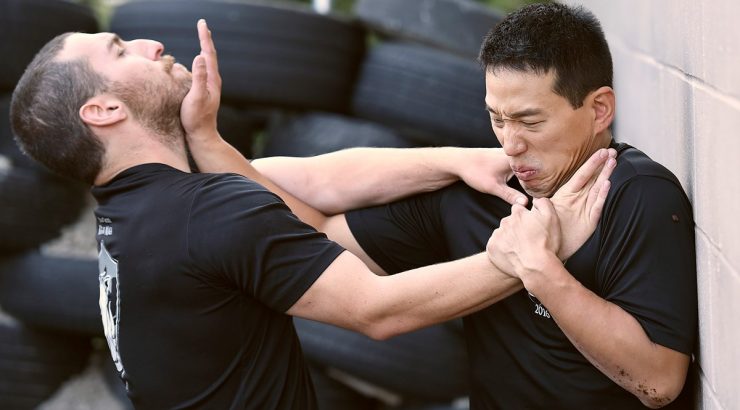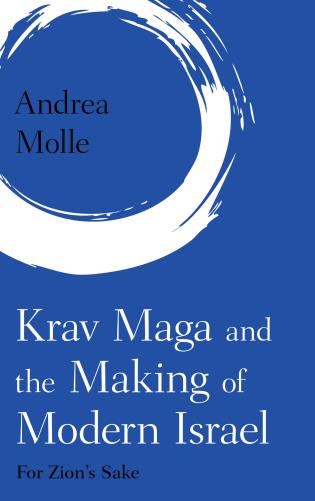
Krav Maga and the Making of Modern Israel: For Zion’s Sake Faculty Book
March 15, 2022
 Dr. Andrea Molle, assistant professor in the Departments of Political Science in Wilkinson College of Arts, Humanities, and Social Sciences, recently published his book, Krav Maga and the Making of Modern Israel: For Zion’s Sake. The book studies the relationship between the Israeli martial art of Krav Maga and the development of Israel’s national identity. iDr. Molle explores how Krav Maga in Israel Defense Force training serves as a “profoundly unifying experience” for the Jewish people.
Dr. Andrea Molle, assistant professor in the Departments of Political Science in Wilkinson College of Arts, Humanities, and Social Sciences, recently published his book, Krav Maga and the Making of Modern Israel: For Zion’s Sake. The book studies the relationship between the Israeli martial art of Krav Maga and the development of Israel’s national identity. iDr. Molle explores how Krav Maga in Israel Defense Force training serves as a “profoundly unifying experience” for the Jewish people.
The Voice of Wilkinson sat down with Dr. Molle to discuss Krav Maga and the Making of Modern Israel: For Zion’s Sake.
Voice of Wilkinson: Could you please introduce the concept of the book?
Dr. Andrea Molle: This book primarily examines the interaction between Krav Maga and the birth of the State of Israel. A broader goal is to enlighten the ways martial arts, combat sports, and combative systems correlate with concepts such as nationalism. Finally, I meant it as a way to start exploring the idea that a constructive approach to limited and controlled violence is functional to preserve a peaceful society.
VoW: What inspired you to write a book analyzing the relationship between Krav Maga and the Israeli national identity?
AM: Israeli national identity, and more in general Jewish nationalism, is a very complex and textured phenomenon. It is also one of the most contested national endeavors. I felt it was time to try and look at it outside the boundaries of how it is normally approached in the literature. For this very reason I tried and avoided any characterization of Zionism in my book.
VoW: I understand that in the book you explore how physical violence can serve as a unifying experience for a nation. Could you briefly discuss this idea?
AM: Yes, the idea is mainly twofold. On the one hand, it is evident that the state considers violence (both internally and externally) as a political tool especially in the nation building phase but not limited to. That is also what we are, unfortunately, rediscovering with the current Ukrainian crisis. Violence must be regulated to avoid the breakdown of society, but it is also functional to preserve society from collapsing. On the other hand, if we follow the evidence presented by evolutionary anthropology and hoplology, individuals have violent pulsions which must be properly channeled. These are highly advantageous from an evolutionary perspective but also present many challenges to cooperation.
VoW: What is the main view you hope to impart to your audience with this book?
AM: I am extremely ambitious with this book. I want to make a contribution to the field of political science both in the area of Israeli politics and, primarily, connecting it to the field of martial art studies. I would like for it to be the cornerstone of Political Hoplology, a cross pollinated interdisciplinary area devoted to the study of the political implications of martial arts and combatives.

